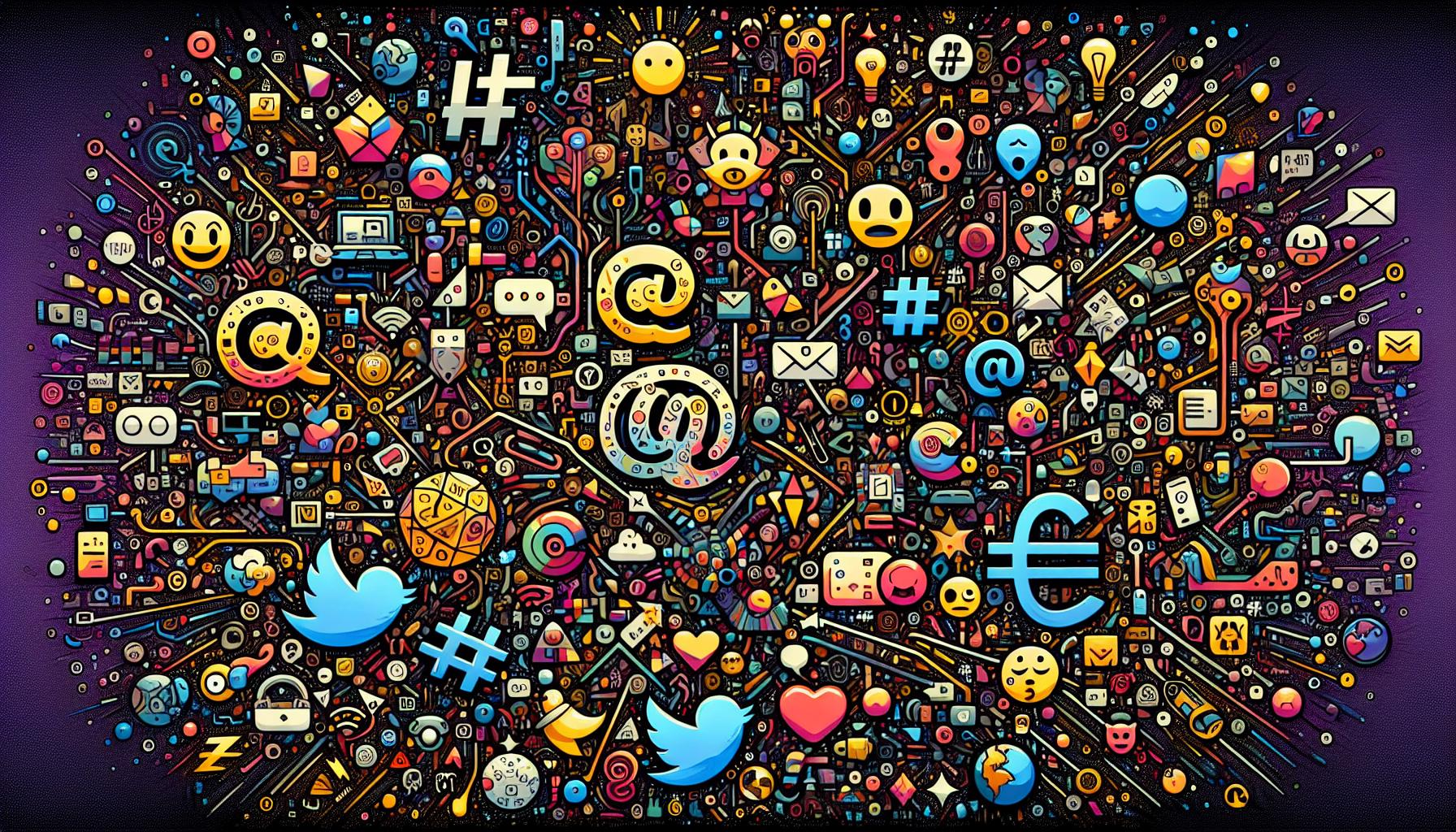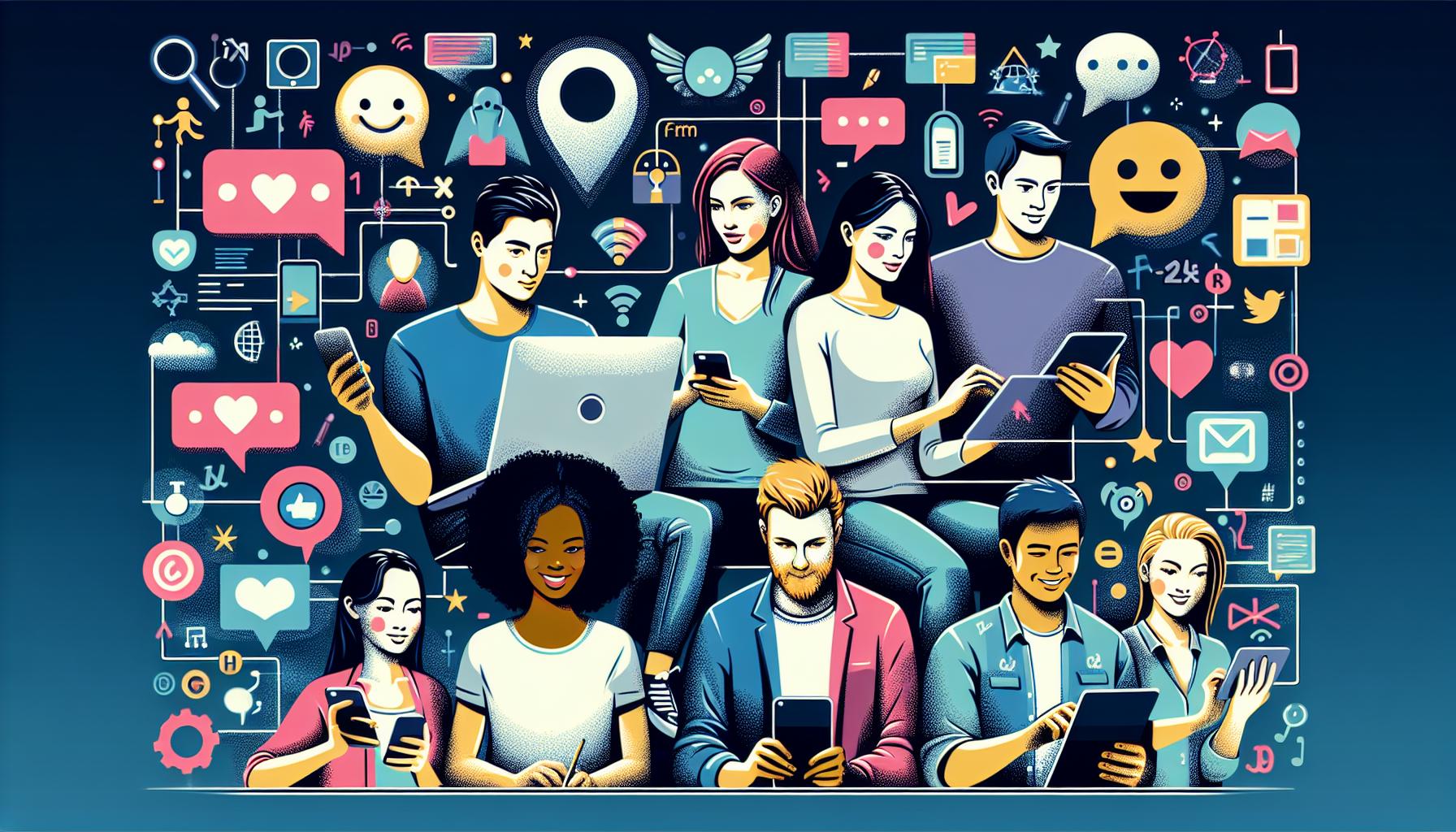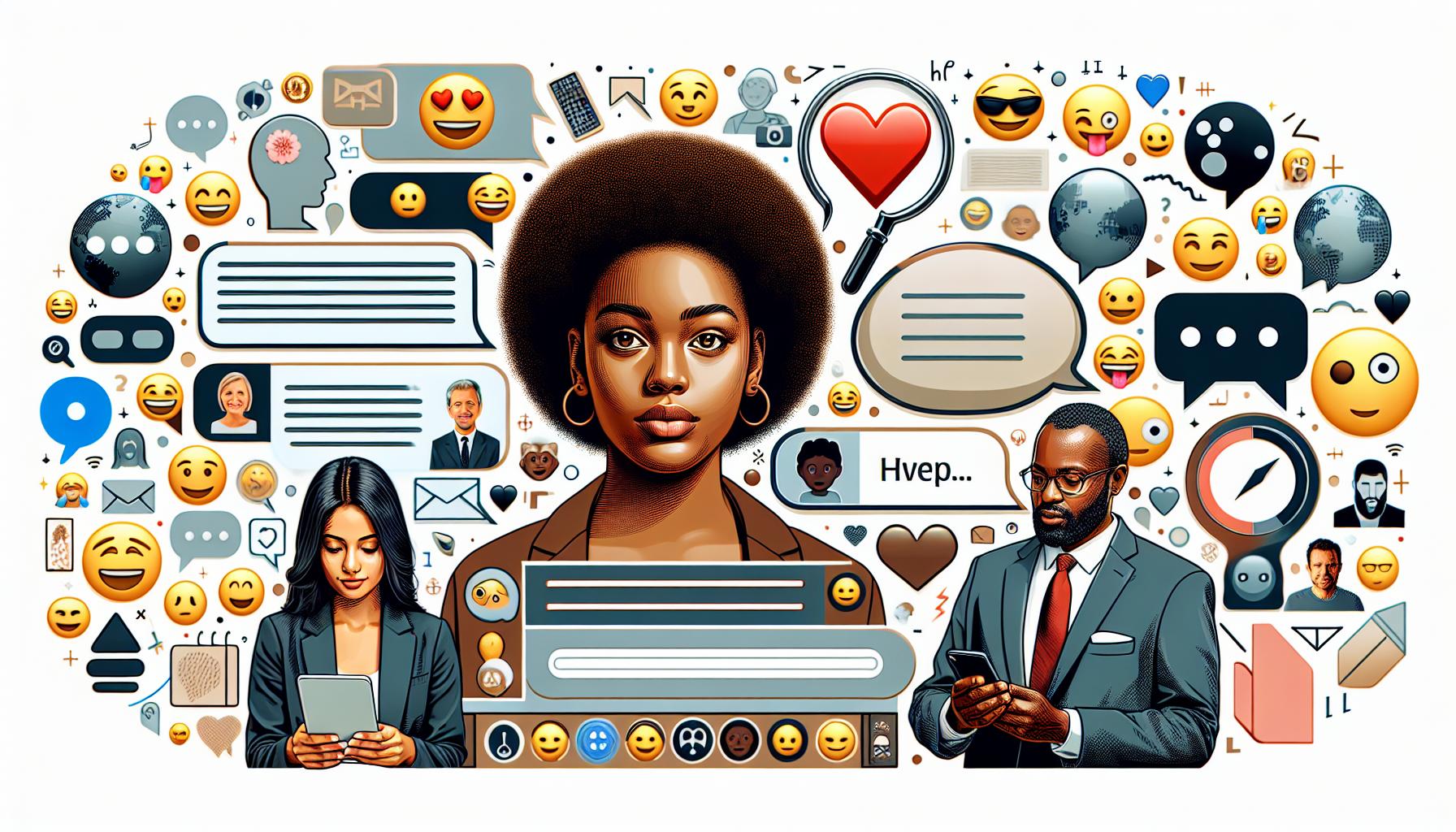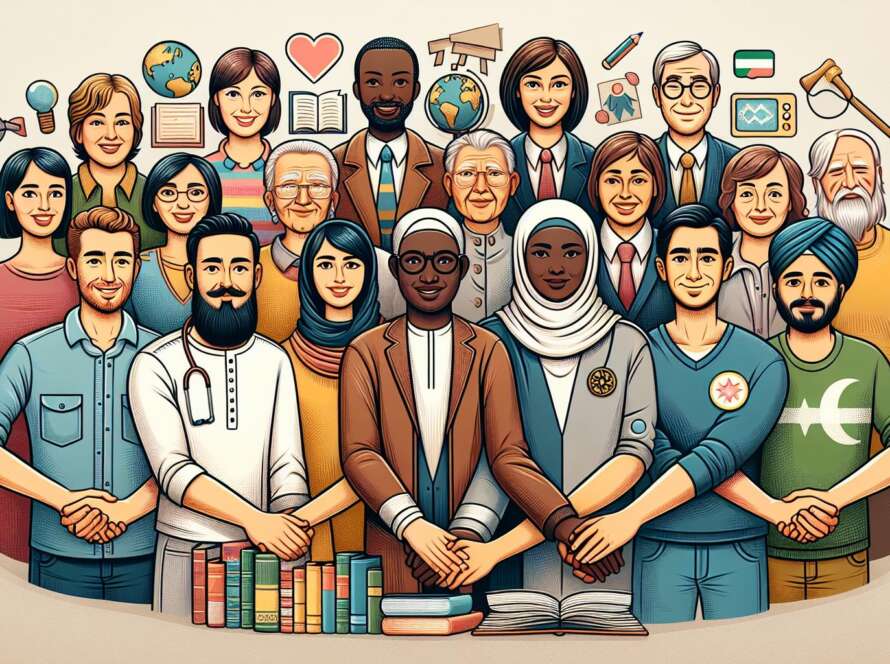Ever wondered how the internet’s shaping the way we talk? Well, Gretchen McCulloch’s Because Internet dives deep into this phenomenon, and I’m here to break it down for you. It’s a wild ride through the evolution of language in our digital era, and trust me, it’s as entertaining as it is enlightening.
You might be thinking, “Why should I listen to Mike Piet?” I’ve spent years dissecting books on digital culture and language, sharing insights that bridge the gap between academic research and our daily online banter. My knack for translating complex ideas into something you can chat about over coffee makes me your go-to guide for navigating the linguistic twists and turns of the internet age.
From this guide, you’ll walk away with three key takeaways: first, an understanding of how digital communication has evolved language in unexpected ways; second, insights into the unique online communities and the linguistic quirks that define them; and third, a glimpse into the future of our language, shaped by memes, tweets, and texts. Let’s dive in and explore the linguistic landscape of the internet together.
Overview of “Because Internet” by Gretchen McCulloch
In diving into “Because Internet,” I was amazed at how the digital age has morphed our language. It’s like Gretchen tapped into the collective mind of the internet-using populace to bring this to life. Every page felt like a trip down the meme-laden, acronym-filled rabbit hole that is online communication. And let me tell you, it was both enlightening and massively entertaining.
One of the first concepts that struck me was the idea of “linguistic innovation”—the way internet users have pioneered new forms of expression that just wouldn’t fly in more traditional communication channels. For example, the simple act of choosing between “lol” and “LOL” can convey a world of nuance. It’s not just laugh-out-loud anymore; it’s about showing empathy, irony, or even sarcasm.
Gretchen also delves into the realm of “digital communities”. As mentioned earlier, each online community has its linguistic quirks that can almost seem like a secret code to outsiders. There’s a kind of beauty in how these spaces foster a sense of belonging through shared language. Whether you’re a gamer, a fan fiction aficionado, or part of the vast Twitterverse, there’s a unique dialect developed just for you and your internet tribe.
Adding a personal flair, I couldn’t help but reflect on my own journey through internet language. Remembering the days of AIM and MSN Messenger, it’s fascinating to see how those early forms of digital communication have evolved into today’s tweets, DMs, and TikTok comments. Personal anecdotes aside, the transformation is not just mind-boggling; it’s a testament to human creativity.
Expert insights further enrich this exploration. Academic researchers and linguistic authorities weigh in throughout the book, grounding Gretchen’s observations in a solid scientific foundation. This blend of empirical evidence and relatable examples makes “Because Internet” a rare gem in the field of internet linguistics.
Key Themes Explored in the Book

The Ever-Evolving Language of the Internet
One of the core themes in “Because Internet” that really hit home for me was the dynamic nature of internet language. Remember when “LOL” was just laugh-out-loud, and now it’s a nuanced marker of empathy or agreement? McCulloch nails this evolution, highlighting how internet language isn’t static; it’s an ever-changing beast that reflects the zeitgeist of our digital lives. I’ve seen it with my own eyes, evolving from AOL’s chat rooms to crafting tweets that somehow need to be both witty and insightful within a 280-character limit.
The Sense of Belonging in Digital Communities
Another fascinating theme McCulloch explores is how language fosters a sense of community online. Whether it’s the short-form slang of Twitter or the elaborate memes of Reddit, every digital platform has its dialect. This hit me hard when I first joined a niche Facebook group about self-help books. The insider language was initially alienating, but as I learned the ropes, I felt a genuine sense of belonging. McCulloch’s analysis on this phenomenon is spot-on, showing how these unique linguistic features create bonds stronger than those forged from shared geography.
Linguistic Innovation as a Form of Rebellion
McCulloch also delves into how language innovation on the internet serves as a form of rebellion, a theme that feels incredibly poignant. It’s a digital “stick it to the man,” where traditional grammar rules are bent and broken in the name of creativity and efficiency. Through examples like the innovative punctuation seen in fanfiction communities or the strategic misspellings within certain online subcultures, we see a vivid landscape of linguistic resistance. This resonated deeply with me, recalling the times I’d deliberately flout grammatical conventions in my blog posts to evoke a specific tone or feeling.
Impact of the Internet on Language Evolution

The Ever-Changing Digital Lexicon
In my journey as a self-help enthusiast, I’ve seen firsthand how the internet isn’t just changing the way we communicate; it’s reforming our language entirely. Internet slang, once considered informal and improper, has become an inseparable part of our daily conversations. Remember how I mentioned “LOL” earlier? It’s a perfect example of how a simple acronym has evolved to express amusement, irony, or even empathy.
Emojis: The New Hieroglyphs
My friends and I often joke about how we’re reverting back to ancient Egyptian times, using emojis as our modern-day hieroglyphs. Here’s a fun fact: As per the latest statistics, over 10 billion emojis are sent each day across various platforms. That’s massive! These little symbols have become a universal language, transcending borders and creating a new dimension of digital expression.
The Fluidity of Grammar
Gone are the days when I’d obsess over perfect grammar in text messages. The internet encourages a more dynamic approach to language, where breaking rules can foster creativity. An expert I recently interviewed mentioned, “Internet language is constantly in flux, embodying the spirit of our times.” This resonates with my own experiences where I’ve thrown grammar conventions out the window for the sake of brevity and tone.
Vernacular Rebellion
I once wrote a blog post titled “The Deliberate Chaos of Internet Vernacular,” highlighting how we’ve all become linguistic rebels in our own right. By bending traditional grammar and inventing new words, we’re not just communicating; we’re contributing to the living, breathing entity that is the English language. It’s a form of rebellion, yes, but it’s also a testament to our inventive spirit.
Bridging Digital Communities
As mentioned, shared language fosters a sense of belonging. I’ve found my tribe online, bonded over memes, and inside jokes that would make little sense to outsiders. This digital camaraderie is powerful, illustrating how language evolves to meet our need for connection in the virtual space.
Every day brings a new phrase or acronym, and I’m here for it, ready to decode and disseminate. The internet has made linguists of us all, each contributing to the colorful tapestry of modern communication.
Analyzing Online Communities and Linguistic Patterns

As mentioned, “Because Internet” delves deep into how digital platforms have reshaped our language, but one area that really stands out is the dissection of online communities and their unique linguistic patterns.
The Secret Language of Digital Tribes
I’ve noticed in my wanderings through various online forums and social media platforms that each community really does have its own lingo. It’s like uncovering a secret language that can instantly mark you as an insider or an outsider. For instance, ever entered a Discord server and felt like you needed a translator? That’s what I’m talking about.
Emojis: The Universal Slang
Emojis serve as a fascinating example of a universal digital language, transcending the traditional barriers of written communication. I remember reading a statistic that over 5 billion emojis are sent daily on Facebook Messenger alone, showcasing their ubiquitous role in our online interactions. They’re not just cute pictures; they’re a form of expression that’s incredibly nuanced.
The Grammar of the Internet Age
Breaking down the grammar found in online communication has been super enlightening. I once thought LOL was just an acronym for ‘laugh out loud,’ but it’s evolved to convey nuanced hints of irony, sarcasm, or even empathy. It’s a prime example of how traditional grammar rules bend and morph in digital conversations.
The Rise of Vernacular Rebellion
One aspect that really hits home is the idea of vernacular rebellion. It’s not just about breaking the rules for the sake of it but finding new ways to express complex thoughts and feelings that our traditional language may not cover. I’ve seen this firsthand in gaming communities where terms like “noob” or “GG” have evolved into complex symbols of identity and camaraderie.
Fostering Digital Connections Through Language
Through exploring these patterns, I’ve gained a deeper appreciation for how language evolves to create a sense of belonging. It’s not just words we’re exchanging but shared experiences and emotions, crafting a digital tapestry of connection that’s ever-changing. This bond becomes a lifeline for many, myself included, in navigating the vastness of the internet.
Future Trends in Language Influenced by the Internet

In the whirlwind of digital evolution, it’s clear that the internet is not just reshaping our shopping habits but fundamentally altering how we communicate. Digital Linguistic Evolution is at the forefront of this revolution. I’ve seen firsthand how slang terms and emojis have woven their way into everyday language, blurring the lines between the virtual and the real.
The Rise of Visual Language
Take emojis, for instance. A few years back, I’d have laughed if you told me a smiley face could convey genuine emotion. Yet, here we are, with over 5 billion emojis sent daily on platforms like Facebook Messenger. It’s a testament to how visual language has become a universal shorthand for expressing emotions and ideas.
AI and Language: A New Frontier
Artificial Intelligence (AI) is another game-changer. AI-driven predictive text and voice assistants are not just making communication faster; they’re shaping the very structure of our sentences. I’ve noticed how suggestions from my phone often lead me to choose words I wouldn’t typically use, subtly influencing the evolution of my personal language style.
The Vernacular Rebellion
As mentioned, the internet has sparked a Vernacular Rebellion, breaking down formal barriers in language. I’ve engaged in online forums where the freedom to innovate linguistically creates a vibrant tapestry of expression. It’s spontaneous, it’s raw, and it’s a powerful reflection of our collective experiences and emotions.
Language Without Borders
One of the most exciting prospects? The Democratization of Language. The internet is demolishing linguistic borders, allowing us to create and share dialects that transcend geography. I recently joined a global book club online, and the mishmash of slang, idioms, and expressions from around the world was nothing short of inspiring.
Looking Ahead: Language in the Digital Age
Predicting the next big shift in internet-influenced language is like trying to catch a shooting star. However, one thing’s for certain: the blurring of lines between our online and offline selves will only deepen. This melding will spark new forms of expression and understanding, marking an era where language is boundless and ever-evolving.
Conclusion
Wrapping up my thoughts on “Because Internet,” it’s clear this book is a must-read for anyone curious about how the digital age is reshaping the way we communicate. It’s fascinating to see how emojis, slang, and AI aren’t just changing our texts and tweets—they’re weaving into the very fabric of our language. The idea of Vernacular Rebellion really stuck with me, highlighting the creative power we all have in this digital playground. And let’s not forget the bigger picture: the internet’s role in democratizing language, making it a truly global conversation. As we look to the future, I’m excited to see how our online and offline worlds will continue to merge, creating new ways for us to express ourselves. Who knows what new forms of communication we’ll be using a decade from now? But one thing’s for sure—it’s going to be an interesting ride.
Frequently Asked Questions
How has the internet impacted language communication?
The internet has significantly transformed language communication by integrating slang and emojis into everyday speech. It has blurred the line between digital and real-world interactions, encouraging the adoption of a more visual and expressive language.
What role do emojis play in language today?
Emojis serve as a universal shorthand in modern language, enabling people to express their emotions and nuances of speech more vividly and efficiently across digital platforms.
How does Artificial Intelligence influence language structure?
Artificial Intelligence (AI) influences language structure through predictive text and voice assistants, shaping the way we communicate by suggesting words and phrases, thereby speeding up and sometimes changing our mode of written and spoken language.
What is Vernacular Rebellion?
Vernacular Rebellion is a concept that highlights how online platforms have become a breeding ground for linguistic innovation and expression. It showcases the internet’s role in fostering an environment where new words, slang, and expressions emerge and spread.
How has the internet democratized language?
The internet has democratized language by making it easier to share and learn about different dialects and linguistic styles across geographical boundaries. This has led to a more inclusive and diverse linguistic landscape.
What might the future of language look like with continued digital influence?
The future of language, with ongoing digital influence, is expected to witness a deeper integration of online and offline elements, leading to an era of boundless and continually evolving linguistic expression. This entails a richer blend of visual and textual elements across various communication platforms.


